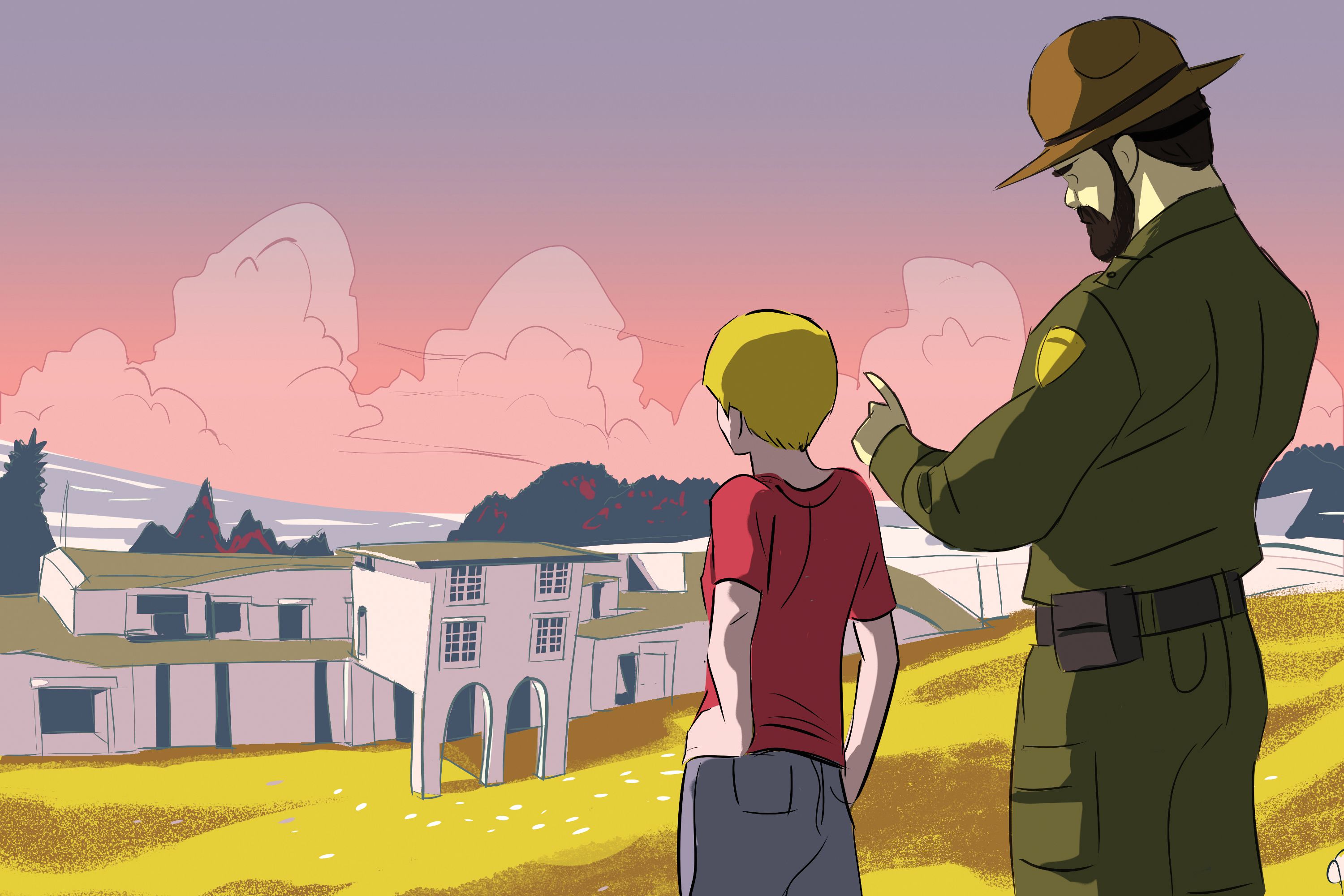Opinion
Longer Parking Hours Are Hurting Chinatown Businesses
This guest op/ed by Don Blakeney, director of the Chinatown/International District Business Improvement Area, comes in response to the recent (and still unresolved) debate over whether later paid parking hours have hurt restaurants in the neighborhood.
In the past month, our local media has paid a lot of attention to the impact of the city's decision to extend paid parking hours from 6 pm to 8 pm in the Chinatown-International District. This plan is part of a larger, city-wide effort to rethink parking and had several overarching goals, one of which was to benefit local businesses by increasing access—the idea being that if you increase the price for parking during the dinner hours, it will dissuade some people from street parking, freeing up more spaces for potential customers.
The truth is that there is not enough available information to see if this new policy is benefiting the businesses in the Chinatown-International District. In fact, there is a growing amount of evidence (both qualitative and quantitative) to suggest the contrary: In a recent economic survey, Chinatown-ID restaurants reported that their dinnertime business had dropped by as much as 30 to 50 percent in the past few months.
Since last summer, at least six Chinatown-ID restaurants have shuttered, changed hands or gone up for sale.
And an SDOT survey conducted last fall showed a 10 percent decline in dinnertime parking occupancy across the neighborhood since SDOT enacted his new parking program.
Business and occupation tax information used by the Sightline Institute to refute the concerns of the Chinatown-ID restaurants shows a neutral to marginal increase in the gross (total) sales receipts of 14 restaurants. However, what Sightline doesn’t tell you is that some of the restaurants in this sample have their own private parking lots. Others from this list have raised their prices, and extended their hours to capture the late-night, weekend crowd. Mom and pops are hustling twice as hard to keep the same dollars coming in the door, raising their prices, spending more on staff, and still losing dinnertime customers. This is why B&O data (while convenient) isn’t the right tool to determine the impact of the new parking policy.
While none of the available data offers a smoking gun, they do warrant concern and further investigation. While we can’t interview the people who are no longer coming down to eat in the District, we can intercept visitors who are here, to ask them about how they arrived and where they are going. However, to get the full picture, we will also need to gather additional information from local businesses, and to do this, we will need the city’s help. While neighborhoods like downtown have great resources to conduct their own economic impact studies, it is hard to expect this type of capacity from the small, family-owned restaurants of the Chinatown-ID. We appreciate that the city shares these concerns and is partnering with us to collect more information this coming month to better understand what is at play in our neighborhood and to better inform parking policies.
It is incumbent on us as an increasingly sophisticated city to take precaution when using citywide policy instruments to address complex issues that impact each of our neighborhoods differently. When neighborhood leaders met with city officials in 2010 regarding the proposed changes to parking, the city committed to working closely with each neighborhood individually as the parking program rolled out; to monitor how it worked, and determine where it needed to be improved. The Chinatown-ID business community believes it is critical to hold the city accountable to its promise to continue working with neighborhoods such as ours as the parking policies are implemented.
The Chinatown-ID is dependent on the viability of its restaurants. Our hope is to work with the city to make this neighborhood economically vibrant and sustainable. We appreciate the environmental goals the mayor's office is working to achieve with its parking policy. However, given the unique characteristics of our neighborhood—and considering the fact that in the past six months alone, South Downtown has seen reduced or rerouted bus service, hundreds of parking stalls disappear to development, and the groundbreaking for a streetcar that will take two years to construct while tearing up the streets of our business district—restaurants have a reason to be concerned.
In the past month, our local media has paid a lot of attention to the impact of the city's decision to extend paid parking hours from 6 pm to 8 pm in the Chinatown-International District. This plan is part of a larger, city-wide effort to rethink parking and had several overarching goals, one of which was to benefit local businesses by increasing access—the idea being that if you increase the price for parking during the dinner hours, it will dissuade some people from street parking, freeing up more spaces for potential customers.
The truth is that there is not enough available information to see if this new policy is benefiting the businesses in the Chinatown-International District. In fact, there is a growing amount of evidence (both qualitative and quantitative) to suggest the contrary: In a recent economic survey, Chinatown-ID restaurants reported that their dinnertime business had dropped by as much as 30 to 50 percent in the past few months.
Since last summer, at least six Chinatown-ID restaurants have shuttered, changed hands or gone up for sale.
And an SDOT survey conducted last fall showed a 10 percent decline in dinnertime parking occupancy across the neighborhood since SDOT enacted his new parking program.
Business and occupation tax information used by the Sightline Institute to refute the concerns of the Chinatown-ID restaurants shows a neutral to marginal increase in the gross (total) sales receipts of 14 restaurants. However, what Sightline doesn’t tell you is that some of the restaurants in this sample have their own private parking lots. Others from this list have raised their prices, and extended their hours to capture the late-night, weekend crowd. Mom and pops are hustling twice as hard to keep the same dollars coming in the door, raising their prices, spending more on staff, and still losing dinnertime customers. This is why B&O data (while convenient) isn’t the right tool to determine the impact of the new parking policy.
While none of the available data offers a smoking gun, they do warrant concern and further investigation. While we can’t interview the people who are no longer coming down to eat in the District, we can intercept visitors who are here, to ask them about how they arrived and where they are going. However, to get the full picture, we will also need to gather additional information from local businesses, and to do this, we will need the city’s help. While neighborhoods like downtown have great resources to conduct their own economic impact studies, it is hard to expect this type of capacity from the small, family-owned restaurants of the Chinatown-ID. We appreciate that the city shares these concerns and is partnering with us to collect more information this coming month to better understand what is at play in our neighborhood and to better inform parking policies.
It is incumbent on us as an increasingly sophisticated city to take precaution when using citywide policy instruments to address complex issues that impact each of our neighborhoods differently. When neighborhood leaders met with city officials in 2010 regarding the proposed changes to parking, the city committed to working closely with each neighborhood individually as the parking program rolled out; to monitor how it worked, and determine where it needed to be improved. The Chinatown-ID business community believes it is critical to hold the city accountable to its promise to continue working with neighborhoods such as ours as the parking policies are implemented.
The Chinatown-ID is dependent on the viability of its restaurants. Our hope is to work with the city to make this neighborhood economically vibrant and sustainable. We appreciate the environmental goals the mayor's office is working to achieve with its parking policy. However, given the unique characteristics of our neighborhood—and considering the fact that in the past six months alone, South Downtown has seen reduced or rerouted bus service, hundreds of parking stalls disappear to development, and the groundbreaking for a streetcar that will take two years to construct while tearing up the streets of our business district—restaurants have a reason to be concerned.




